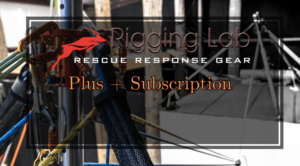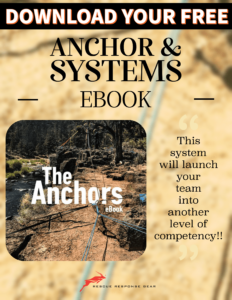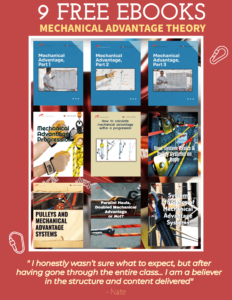Why is this so vitally important to us as humans, riggers, and rescuers? We as people, especially in today’s world, tend to take the easy way out and “believe” what we are told and this can have some downsides to it, and when it comes to technical rescue and rigging, we want to understand, comprehend and know what is happening before we jump in and make decisions on evaluating rigging solutions.
Okay, but… Why is this important?
Believing, knowing, thinking and understanding all have gradients. In the classroom, for example, an instructor might demonstrate or teach students a typical mechanical advantage system; to the fire guy, this might look one way and to a search and rescue member or mountain rescue guy it might look like something else. Both are intended to make work easier. Logic would dictate that any given mechanical advantage system intended for the fire service might not work for the mountain environment and visa versa correct? Maybe and maybe not… but why? There could be a dozen reasons, but strategy, tactics, environmental conditions, skills, available gear, the appropriate gear would be a few of them. Believing and understanding are both necessary components to learning.

Here are a few questions to consider:
- Do people actually have a reference for 12.5mm rope capacity vs 11mm rope?
- What about a large pulley vs a small pulley?
- Does holding a truck or car in mid air actually makes sense in developing an understanding of a rated anchor, or the in-line strength of a rope?
- If a single carabiner has a minimal breaking strength of 5,000 lbs and an 11mm rope as an end to end strength of 8,000 lbs and a normal sized car weighs about 5,000, why would anyone wonder if a single carabiner and single line of rescue rated rope can hold a person?
Angles of articulation, deflection, resultants, force vectors, and loss or gain of efficiency all play a part in building solid, effective, and appropriate systems.
Here’s the point: the goal of “thinking beyond our thoughts” or metacognitive strategies is to help us become comfortable with developing strategy.
When this is in place, they automatically increase our learning while focusing our attention and derive meaning when evaluating and outcome. We don’t think about these skills while performing them but, if asked what we are doing, we can usually accurately describe our thought processes which ultimately drive our strategies and tactics.
Some types of metacognitive knowledge would include…
- Content knowledge (declarative knowledge) which is understanding one’s own capabilities, such as a student evaluating his/her own knowledge of a subject in a class. It is notable that not all metacognition is accurate. Studies have shown that students often mistake lack of effort with understanding in evaluating themselves and their overall knowledge of a concept. Also, greater confidence in having performed well is associated with less accurate metacognitive judgment of the performance.
- Task knowledge (procedural knowledge), which is how one perceives the difficulty of a task which is the content, length, and the type of assignment. Again, the accuracy of this knowledge was skewed as students who thought their way was better/easier also seemed to perform worse on evaluations, while students who were rigorously and continually evaluated reported to not be as confident but still did better on initial evaluations.
- Strategic knowledge (conditional knowledge) which is one’s own capability for using strategies to learn information. Young children are not particularly good at this; it is not until students are in upper elementary school that they begin to develop an understanding of effective strategies.
[thrive_lead_lock id=’51985′]Hidden Content[/thrive_lead_lock]
Peace on your Days
Lance










4 thoughts on “Leading From Knowledge and Perception”
666003 488978Some truly wonderful content material on this web website , thankyou for contribution. 963645
63820 810738I ran into this page accidentally, surprisingly, this is a fantastic website. The website owner has done an excellent job writing/collecting articles to post, the information here is genuinely insightful. You just secured yourself a guarenteed reader. 880109
750135 215208Thanks for another informative web site. The place else could I get that type of information written in such an ideal means? 990983
884407 345751Intriguing site, i read it but i nonetheless have some questions. shoot me an e-mail and we will talk more becasue i might have an fascinating idea for you. 645366
Comments are closed.